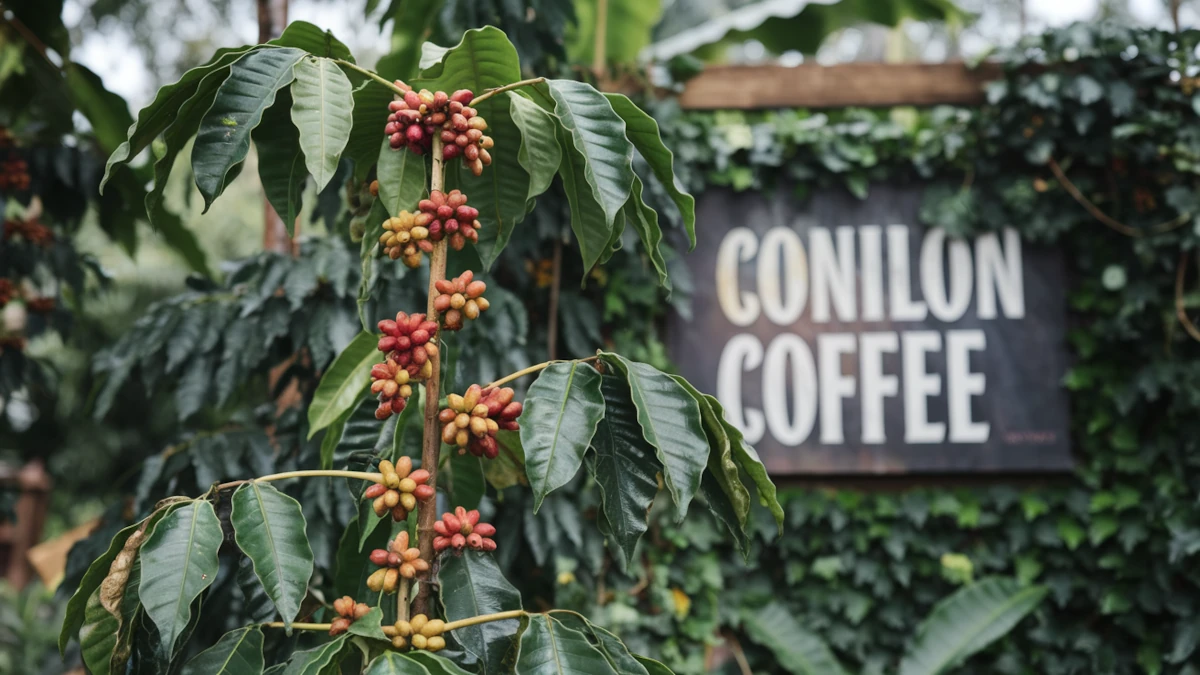Conilon coffee is more than just another variety of robusta—it’s a bold, resilient coffee bean that’s redefining Brazil’s coffee industry. As climate change threatens traditional coffee-growing regions, Conilon stands out for its adaptability and sustainability.
What is Conilon coffee?
Conilon coffee, a type of Coffea canephora, is primarily grown in Brazil, particularly in Espírito Santo. Known for its robust flavor and ability to thrive in warm, low-altitude climates, Conilon is a cornerstone of Brazil’s coffee industry and a rising star in the global market.
This article explores Conilon’s unique characteristics, production innovations, and its potential to shape the future of coffee. Whether you’re a coffee enthusiast or curious about sustainable coffee practices, this is your guide to understanding Conilon coffee.
Table of Contents
What is Conilon Coffee?
Definition and Origin
Conilon coffee is a genetic group within Coffea canephora (commonly known as robusta). Originating in Brazil, Conilon is especially prevalent in the state of Espírito Santo. It is known for its shorter plants, earlier maturation, and exceptional drought resistance—traits that make it uniquely suited for large-scale cultivation.
Key Characteristics
- Resilience:
- Highly resistant to pests and diseases.
- Thrives in warmer climates where Arabica struggles.
- Flavor Profile:
- Strong, bold taste with earthy and woody notes.
- Low acidity and a heavier body, making it ideal for espresso and instant coffee.
- Caffeine Content:
- Higher caffeine levels than Arabica, offering a robust, energizing experience.
The Role of Espírito Santo in Conilon Coffee Production
Espírito Santo: The Heart of Conilon
Espírito Santo is the epicenter of Conilon coffee production, accounting for 64% of Brazil’s total output. With over 283,000 hectares dedicated to Conilon farming, the state supports 40,000 farms and creates 250,000 jobs, driving the local economy.
Small Farms and Family Enterprises
Unlike large plantations, Espírito Santo’s coffee farms are often small and family-run. These farmers are adopting sustainable practices to ensure long-term productivity and minimal environmental impact.
Modern Innovations Elevating Conilon Coffee
Farming Practices
- Controlled Fermentation: Enhances the bean’s sensory qualities, leading to more complex flavors.
- Carbonic Maceration: A method borrowed from the wine industry, improving Conilon’s premium appeal.
- Sustainability: Reduced water usage and agroforestry practices are gaining momentum among farmers.
Technological Advancements
Precision agriculture tools, such as data-driven irrigation and soil analysis, are transforming Conilon farming. These innovations boost productivity and quality while reducing environmental impact.
From Commodity to Premium
Historically viewed as a low-quality option for blends and instant coffee, Conilon is now finding its place in specialty coffee markets. This shift is driven by younger farmers who leverage technology and sustainable practices to elevate its reputation.
Sustainability and Global Impact
Addressing Climate Change
As climate change disrupts traditional coffee-growing regions, Conilon’s resilience makes it a critical crop for the future. Its ability to thrive in harsh conditions ensures a stable supply even in challenging climates.
Eco-Friendly Practices
- Water Conservation: Advanced irrigation techniques reduce water usage.
- Agroforestry: Integrating trees into coffee plantations improves biodiversity.
- Biodegradable Packaging: Minimizing waste aligns Conilon with global sustainability goals.
Balancing Coffee Supply
Conilon plays a vital role in stabilizing global coffee prices and supply, especially as demand grows. Its higher yield and adaptability make it a reliable alternative to Arabica.
Conilon Coffee’s Growing Recognition
From Local to Global
Conilon is no longer just a Brazilian staple. It is gaining recognition among roasters worldwide, finding its way into specialty blends and single-origin offerings.
Future Potential
Ongoing research and innovations, such as enhanced post-harvest techniques, are paving the way for Conilon to compete with premium Arabica coffees. Its potential to meet global demand sustainably positions it as a key player in the future of coffee.
Conclusion
Conilon coffee is a testament to resilience, sustainability, and innovation. With its bold flavor, adaptability to climate challenges, and evolving reputation, Conilon is more than just a coffee bean—it’s a sustainable solution for the future of the coffee industry.
As the world seeks ways to balance coffee demand with environmental responsibility, Conilon offers a bold and inspiring path forward.
